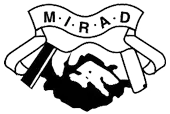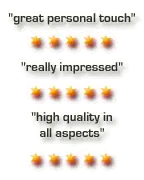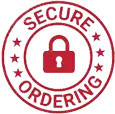The DVLA Clamps Down on Controversial Personalised Number Plates 155 Combinations Deemed Offensive
Reg Plates ArticleThe DVLA Clamps Down on Controversial Personalised Number Plates 155 Combinations Deemed Offensive

The Driver and Vehicle Licensing Agency (DVLA), the authority responsible for vehicle registration in the United Kingdom, has sparked debate by banning 155 personalised number plate combinations. These plates, while seemingly innocuous at first glance, have been deemed offensive due to their potential to cause upset or create negative associations.
This move comes ahead of the release of a new series of number plates later this year. The DVLA is keen to ensure the new options are appropriate for public display on vehicles.
What Plates Got Banned?
The specific combinations on the banned list haven't been officially released by the DVLA. However, news outlets have obtained a glimpse, revealing examples like BE74 END, BL74 WJB, and BO74 CCK. These seemingly random letters and numbers can, when interpreted creatively, take on offensive meanings. For instance, BE74 END could be read as "bad end," while BO74 CCK might be seen as a derogatory term.
The list also reportedly includes plates that could be considered insensitive or disrespectful. Examples might include ST74 BER (referencing a bereavement), TT74 WAT (a potentially offensive term for a specific group of people), and WW74 NKZ (which could be interpreted as a Nazi reference).
The Balancing Act: Freedom of Choice vs. Public Decency
The DVLA's decision to ban these plates has ignited a discussion about the balance between freedom of expression and public decency. Proponents of personalized plates argue that they are a way for car owners to express their individuality and interests. They see the DVLA's intervention as an unnecessary restriction on personal choice.
Opponents, however, believe the DVLA has a responsibility to prevent offensive messages from appearing on public roads. They argue that such plates can cause distress or offense to others, creating a hostile environment on the road.
Finding Common Ground: A System for Review
The challenge lies in finding a middle ground that respects both freedom of expression and public decency. Here are some potential solutions:
A More Transparent Banning System: Currently, the criteria for banning a plate seem subjective. The DVLA could benefit from publishing a clearer set of guidelines outlining which combinations are considered offensive and why. This would allow applicants to make informed decisions and avoid inadvertently choosing a banned option.
A Right to Appeal: A system allowing applicants to appeal a ban on their chosen plate could be implemented. This would provide an avenue for those who believe their plate has been misinterpreted or unfairly judged.
A Focus on Intent: Perhaps the focus should be on the applicant's intent. If someone applies for a plate with a seemingly offensive meaning but can demonstrably show it has a personal, non-offensive significance (like initials or a birthday), perhaps an exception could be made.
Beyond the Headlines: Potential for Unintended Consequences
While the focus is currently on the banned plates, this situation raises broader questions. Could an overzealous application of these restrictions lead to the banning of innocuous combinations misinterpreted as offensive? For instance, could a plate containing the letters "OCD" be banned due to the mental health condition it references, even if the applicant simply likes the initials?
A Moving Target: Keeping Up with Changing Offensiveness
Language and cultural references are constantly evolving. What might be considered offensive today could be harmless tomorrow. The DVLA will need a system to continuously evaluate banned plates and potentially remove them from the list if they lose their offensive connotation over time.
A Delicate Balancing Act
The DVLA's decision to ban offensive number plates is a complex issue with no easy answers. It highlights the need to balance freedom of expression with public decency. By implementing a more transparent system, a right to appeal, and focusing on intent, the DVLA can strive to find a solution that respects both sides of the argument. Finding the right balance will ensure that our roads remain a place for safe and respectful travel, free from unnecessary offense.
It all started back in 1991 when our love and obsession for private number plates was born.
Since then we have grown steadily over the years to become a leading light in the private number plate industry holding our own stock of high quality number plates and many thousands of registrations we are selling for trade and private clients including many celebrities and sports personalities.


- FREE TRANSFER SERVICE - your paperwork is handled by our trained team
- OVER 30 YEARS EXPERTISE - long established and trusted company
- DVLA RECOGNISED RESELLER - linked directly from the DVLA website
- TRADE ASSOCIATION MEMBERS - MIRAD and CN Guild members


